The Ludlow Typograph
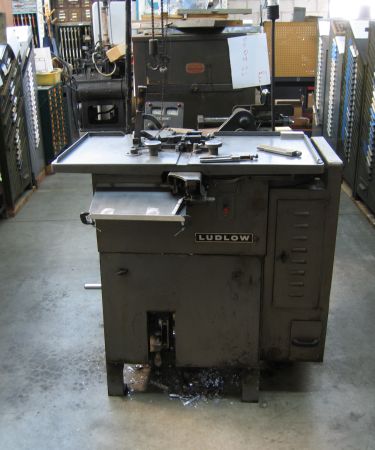
The Ludlow Typograph is a linecasting system, much like the Linotype and Intertype, casting entire lines of type into slugs. The difference is that the Ludlow system uses hand-set matrices, and can set much larger point sizes than a Linotype. It's also a much simpler machine. So in book and newspaper printing, it was used for headlines, and for unusual fonts, and in small job-printing shops, it was used as an alternative to foundry type. Pictured at the right is a Ludlow typograph, with cabinets of brass matrices lined up behind it. The matrices are set in a stick, somewhat similar to the composing sticks used for hand-set foundry type, shown below, with matrices for the phrase, "I Like Spam" set in it.
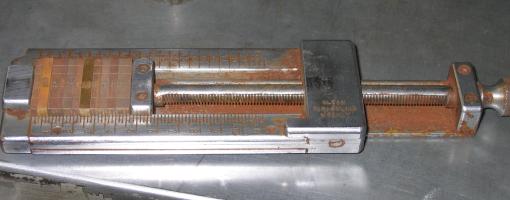
A closer look at the matrices in the stick. Note the spacing material, stamped with the width: 12 points, a 3-em space for 36 point type.
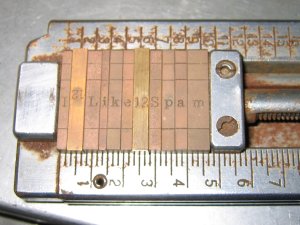
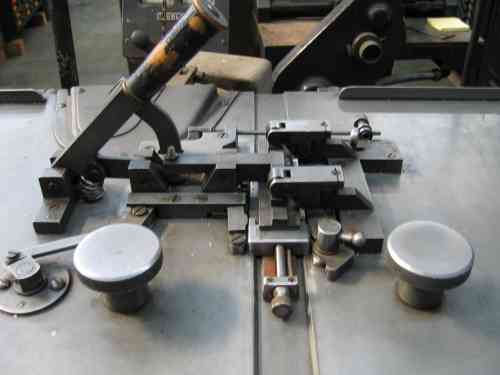
The stick is inserted into the top of the machine, and clamped down. With the motor running, the operator then squeezes the release lever, which starts a casting cycle: the slug mold is held tightly against the matrix cavities, and hot metal is forced in under pressure. It freezes almost instantly, the clamp releases, and a few seconds later, the slug, still quite hot, but quite solid, is delivered out the chute on the front of the machine.
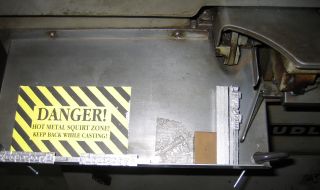
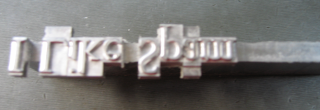
Since a Ludlow machine only has one size of slug mold, large point sizes have a considerable overhang. Note that it's much easier to read a line of type when it's upside down!
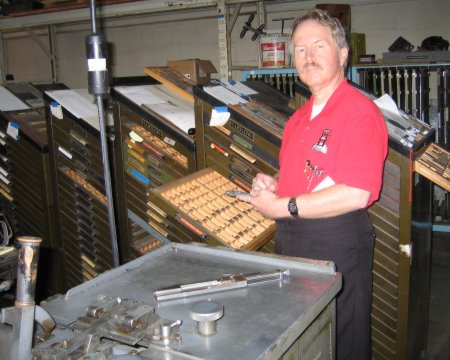

Back to the main typesetting page

Back Home
James H. H. Lampert
Copyright © James H. H. Lampert, 2011, 2015
Revised Tuesday, November 10th, 20151
This Page URL: http://members.toast.net/JHHL/Typesetting/Ludlow.html
Home Page URL: http:/members.toast.net/JHHL/index.html








